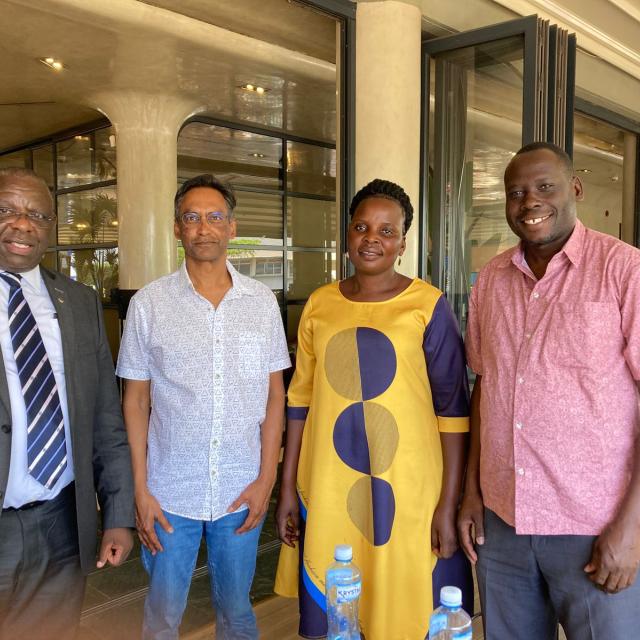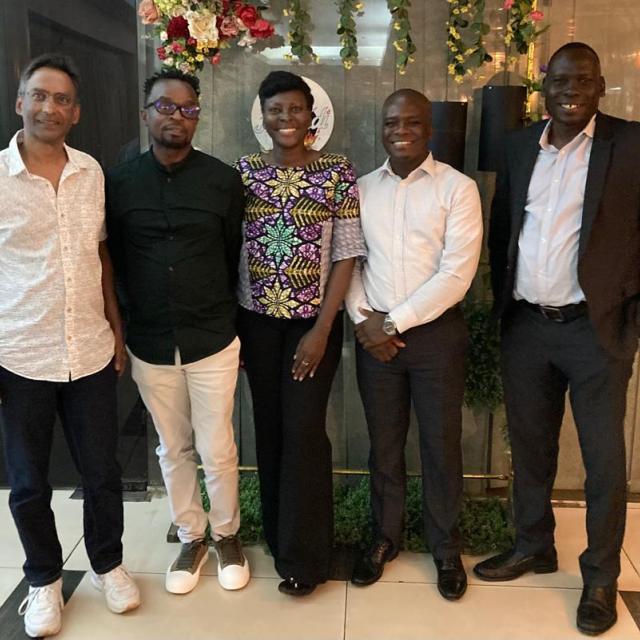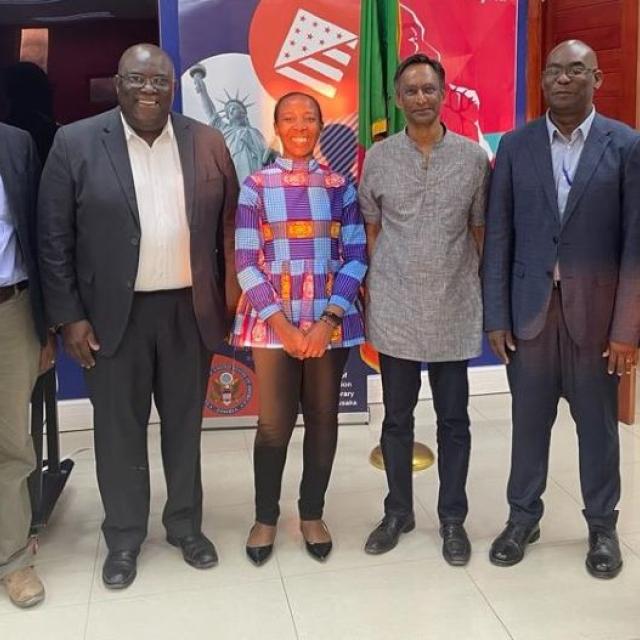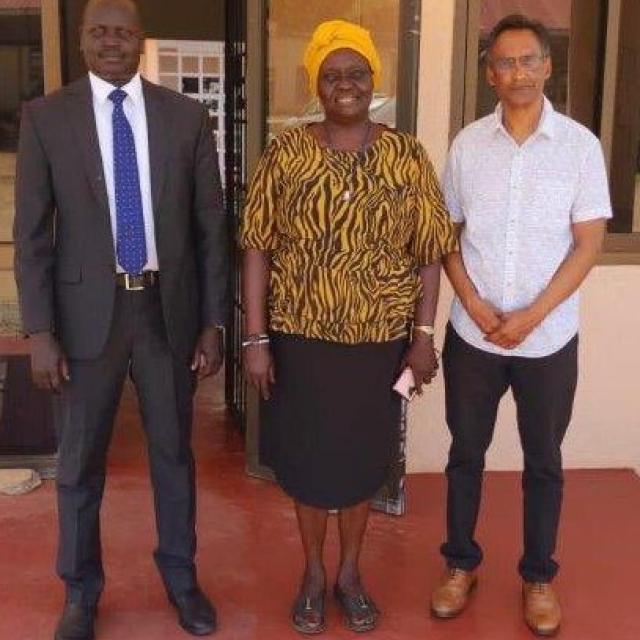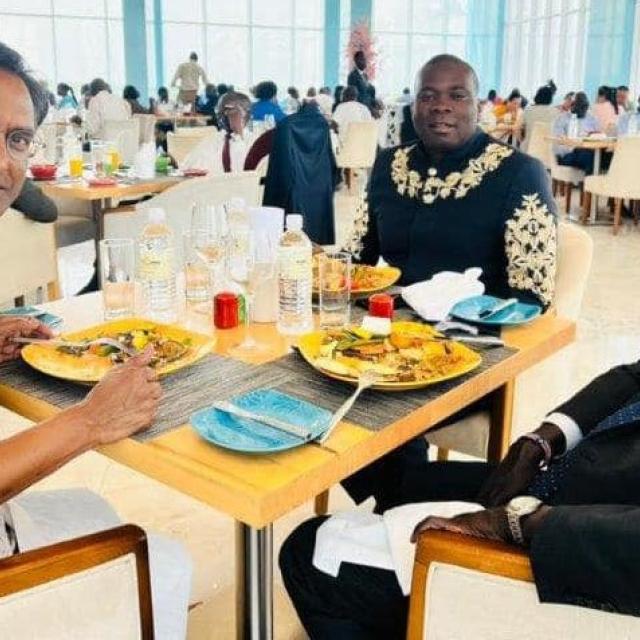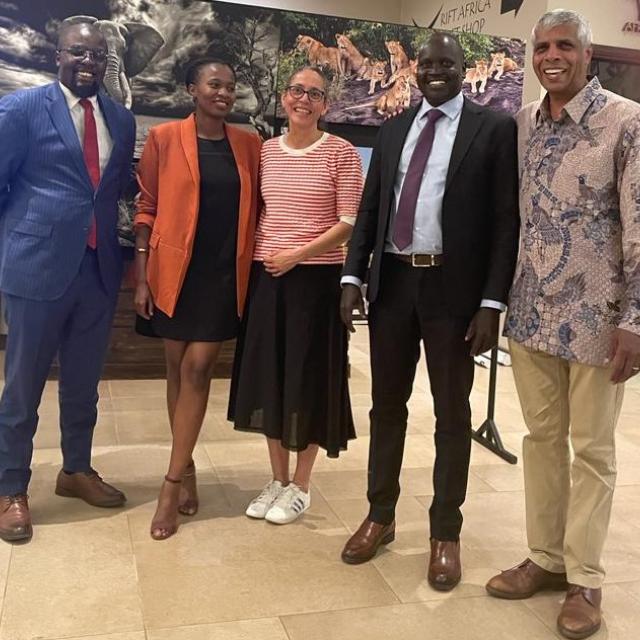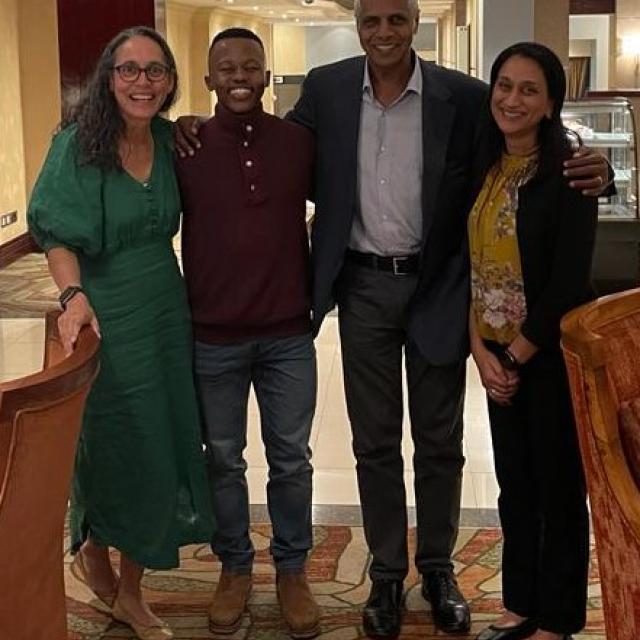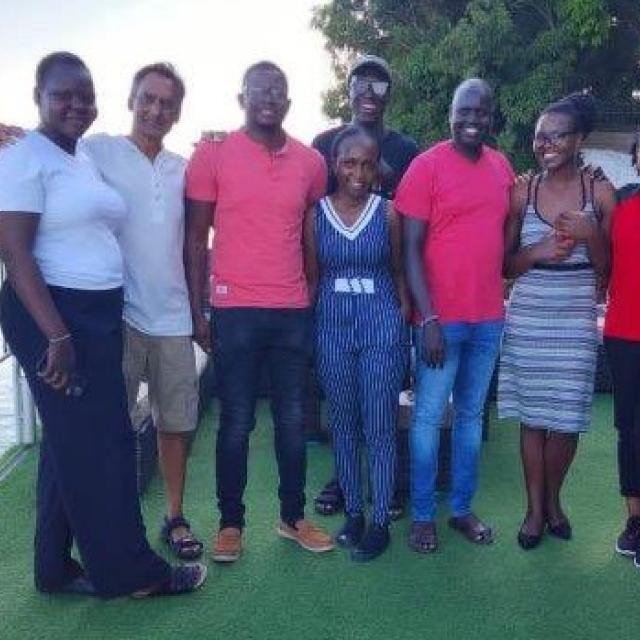Reflections, Call-to-Action, and Hope for the Future
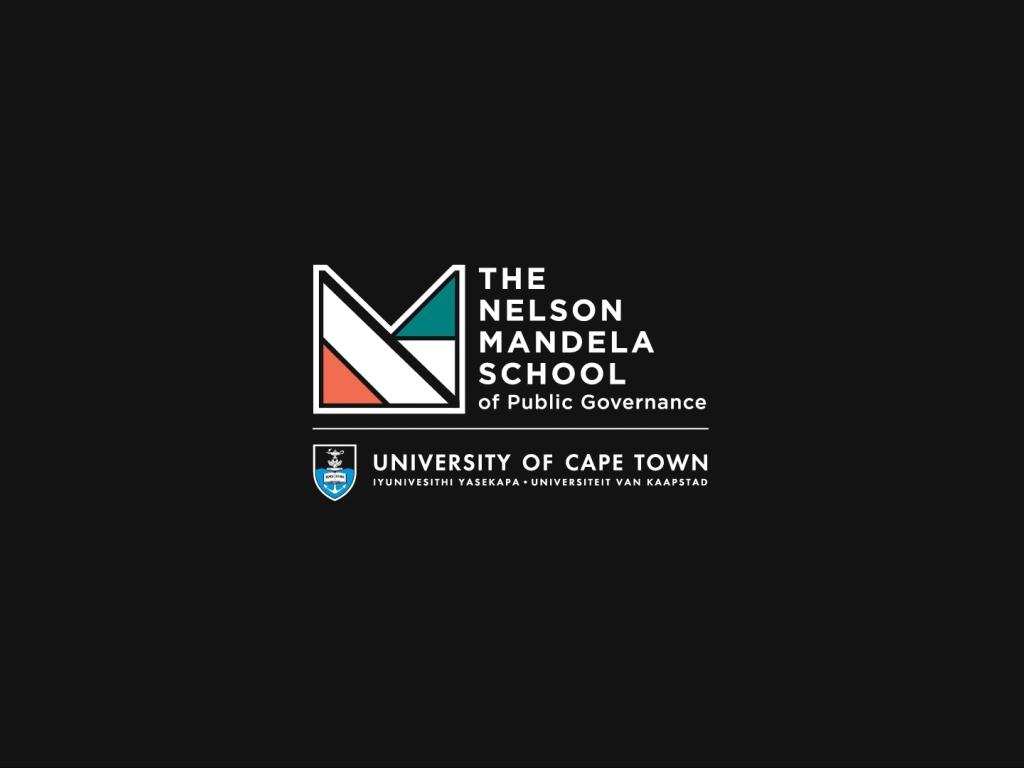
Dear Nelson Mandela School community
Thank you for your continued support, collaboration and belief in the Nelson Mandela School of Public Governance. As a Pan-African public policy school, we remain committed to developing the next generation of ethical African leaders. This task is embedded in our three research academies, academic offerings, executive education and building bridges programmes.
For all of us 2023 was incredibly challenging as the world experienced multiple crises that the World Economic Forum (WEF) referred to as a poly-crisis. This refers to the overlapping challenges of low economic growth, high inflation especially due to high fuel and food prices, heightened debt levels, several regional wars, energy insecurity, and climate change.
The School responded to this reality by creating opportunities for diverse stakeholders to participate in meaningful, constructive, and solution-driven dialogues. Our three research academies and masters and PhD students developed research programmes to understand the root causes of these crises. Towards this end, the School hosted a guest lecture series, which brought together thought leaders and practitioners from around the world to share their insights with the UCT community, our stakeholders, current students, alumni, and policy experts.
The year is nearly over! Before everyone takes a much-needed break, we wanted to thank you for walking this journey with us. We wish you happy holidays.
May you have a restful and rejuvenating time and return next year to continue the long walk to social change with us!
Sincerely,
Professor Faizel Ismail
Director
The Nelson Mandela School of Public Governance
University of Cape Town

The School is growing, and we are happy to introduce the new Adjuncts who joined the School in June 2023: Faten Aggad (Adjunct Associate Professor), Dr Gwamaka Kifukwe (Adjunct Senior Lecturer), Prof Keun Lee (Adjunct Professor), Dr Jafar Javan (Adjunct Professor), Prof Robert Mattes (Adjunct Professor) and Prof João Carlos Ferraz (Adjunct Professor) – they are all experts in their respective fields.
A warm welcome! We look forward to working with you to deepen our work on several strategic thematic areas of focus for the School, including; policy implementation, regional integration, democratic governance, and ethical leadership. Working with you also allows us to increase the breath of learning opportunities that the School can offer our students.
Research-driven and multidisciplinary academic programmes
The last six months have been productive and offered us opportunities to collaborate and participate in policy-driven research. The Nelson Mandela School celebrates the remarkable achievements we have made in providing a multidisciplinary academic programme, leadership training, and innovative research. On Friday, 15 December, we will celebrate our students’ academic achievements during the UCT Summer graduation (twelve MDPP, two MPhil, and one PhD student). The students come from about 16 African countries.
Leading up to COP28, held in the United Arab Emirates, the School collaborated with the Daily Maverick to produce a series of articles on climate change and development in Africa to assist readers in understanding the nuances of the debate on how to respond to the systemic impacts of climate change.
The School staff members, adjunct faculty, students, and fellows are what makes the Nelson Mandela School of Public Governance an extraordinary meeting place for thought-provoking research aimed at Africa’s regional integration.
Driven by a passion for what is possible | Dr Musa Nxele is the winner of ROAPE’s Ruth First Prize, he was awarded the best-published article for his 2022 journal article, Crony Capitalist Deals and Investment in South Africa’s Platinum Belt: A Case Study of Anglo-American Platinum’s scramble for mining rights, 1995–2019. In July, Dr Nxele completed his PhD in Development Policy and Practice from the University of Cape Town, and in October, he successfully defended his PhD in Economics at the Université de Paris 1 Panthéon-Sorbonne. Who is Dr Musawenkosi Nxele?
For Africa’s sake | Shirley Kandabu, Emerging African Leaders Programme (EALP) fellow, is part of the School’s EALP 2018 cohort and a Social Entrepreneur of note. Shirley is the founder of The iCreate Project; she hopes to provide a decent standard of living for grass roots makers across Africa: fair payment for their products and a sustainable stream of income that covers basic needs and supports an existence worthy of human dignity. Learn more about Shirley and how her grandmother inspired her entrepreneurial journey.
From South Africa to Greece | Prof Lindiwe Msengana-Ndlela is South Africa's newly appointed Ambassador to the Hellenic Republic, Greece, and Non-Resident Ambassador-Designate to Cyprus, Serbia, Montenegro, Bosnia, and Herzegovina. The University of Cape Town's Nelson Mandela School of Public Governance is privileged and honoured to have Prof Msengana-Ndlela as an Adjunct Professor. She has a long professional association with the School as a facilitator on several high-level leadership training courses.
Our faculty members are at the forefront of policy-driven discussions and strategic partnerships


The School hosted a Brown Bag discussion, Researching State Capture through the Zondo Commission Archive: Attitudes, Opportunities, and Obstacles. The discussion explored questions such as how the Zondo Commission is currently perceived by the public, what the status of the implementation of Zondo’s recommendations is, and how can these be tracked more accurately. The session was moderated by Dr Marianne Camerer, Senior Lecturer at the School.
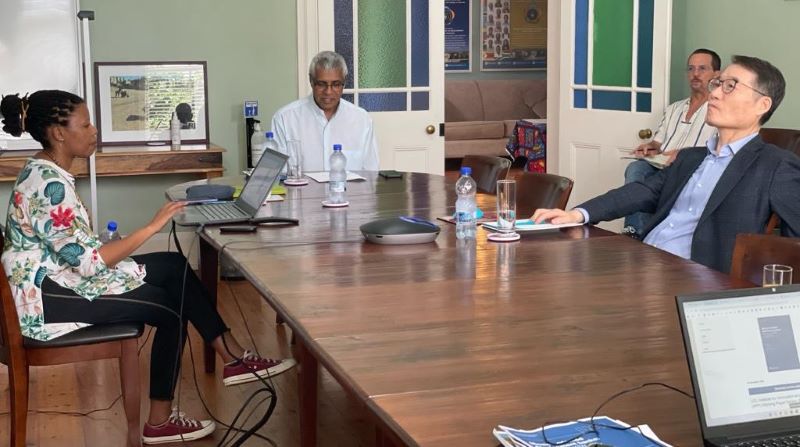
The School’s focus on the AfCFTA and regional development continues to evolve, and the School continues to support the AfCFTA Secretariat in bringing together the 55 countries of the African Union (AU) and eight Regional Economic Communities (RECs) to create a single market for the continent, which will become the largest free trade area in the world. Furthermore, the School is a convenor of the AfCFTA Trade and Industrial Development Advisory Council and is driving the process of developing a continental-wide Cotton, Textiles, and Apparel five-year strategic plan to identify opportunities, challenges, and investment plans in this sector. The five-year strategic plan in the Cotton, textile, and Apparel sector is part of the continent-wide process of deepening regional integration through the development of the regional value chains. The work of this regional value chain is also assisting to unlock the stalemate in the AfCFTA negotiations on Rules of Origin. The AfCFTA Trade and Industrial Development Advisory Council is also involved in cutting-edge research and advisory work on Climate Change and Sustainable Development.
Recently published reports
Research points to huge disproportionality in the CBAM application to Africa - amongst the least responsible for greenhouse gas emissions but most affected by climate change. Read the new report written by Dr Rob Davies, Honorary Professor at the School and a former South African Minister of Trade and Industry.

